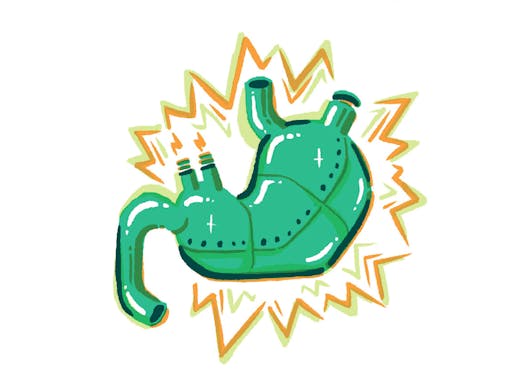It's no secret that being physically active is paramount to our overall health. Thankfully, it's also something nearly everyone can do, regardless of age, ability, ethnicity, shape or size. You might be surprised by the number of ways exercise — the CDC recommends 150 minutes a week — can benefit you, from head to toe:
Brain + mood
If you could bottle the mental health benefits of exercise in a pill, you'd have the most effective and bestselling blockbuster drug of all time:
Short bouts of physical activity help boost mood, combat depression, reduce stress, lower anxiety, enhance creativity, sharpen focus and concentration, and generally improve one's thinking skills. The only known side effect is better body composition.
High-intensity interval training (HIIT), or brief but intense bursts of activity, trigger the same feel-good pathway in the brain as taking opioid drugs or eating sugar.
A simple 10-minute walk can put you in a better mood.
Immune system
Exercise helps strengthen the body's natural defense system, a fact that has had special relevance in the past year and a half as we navigated through a pandemic:
Regular exercise has been shown to improve a person's response to vaccinations, making their bodies more agile and responsive when facing a new stressor.
Regular exercise enhances the function of natural killer cells, which help control the growth of certain tumors and limit the spread of some microbial infections.
Exercise helps tamp down on the type of inflammation associated with Alzheimer's disease, osteoporosis and certain cancers. Just 20 minutes of moderate exercise a day can help.
Heart
Heart disease is the leading cause of death across the globe. Exercise helps reduce the risk of a major cardiac event:
Getting 2 ½ hours of moderate-intensity physical activity every week lowers heart attack risk by 20%.
It also lowers the risk of high blood pressure, metabolic syndrome, Type 2 diabetes, stroke, heart disease, breast and colon cancer, depression and death.
Exercise helps keep arteries young and flexible, and it has been shown to help reduce the risk of blood clots.
Digestion
Very intense exercise and extreme endurance exercise can trigger digestive issues like diarrhea and acid reflux, but moderate movement helps digestion:
Recent research suggests that exercise may help boost the number of beneficial bugs in the gut microbiome, and a more diverse microbiome improves overall health.
Taking a walk after a big meal can help the GI tract function more efficiently, helping things move through — and out — of your body. (In general, exercise increases intestinal motility.)
Mild-to-moderate intensity exercise helps protect against colon cancer and diverticular disease.
Body
From weight loss and improved body composition to less back pain, the physical benefits of exercise are well known. Here are a few physical benefits that get less time in the spotlight:
Exercise can help sore and tired feet. The feet are home to more than 100 muscles, which benefit from exercise just like the other muscles in the body. Whole-body strength training helps keep feet limber and pain-free as we age, and that can have positive upstream effects, like helping prevent tight calves and back pain.
Exercise can help clear skin. Movement gets blood flowing all over the body, including to the skin, which helps give you that post-exercise glow. It can also help with wound healing; the more oxygen that gets shuttled to the site of a wound, the faster it will heal. If you break a sweat while you move, even better. Sweating opens your pores and helps wash out acne-causing dirt.
Exercise may make you taller. Core-strengthening exercises and exercises that target the upper back can make you a little taller. Experts aren't sure why this happens, but it may be that certain exercises improve your posture and, hence, you're naturally sitting up a little taller when the nurse measures your height at your physical.

An infamous heist put this North Woods town in the global spotlight. Nervous breakdowns and Hollywood deals ensued.

Caitlin Clark helps KARE 11 and Fox 9 reporters bond with their daughters

Fewer loon chicks surviving due to climate change, researchers say






